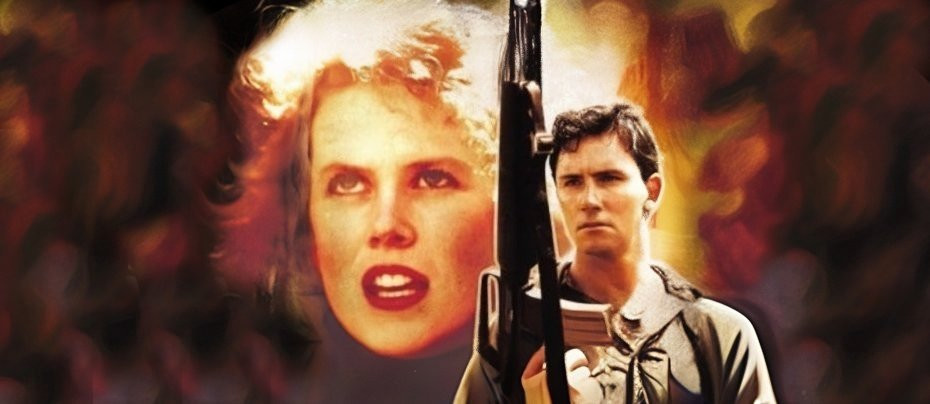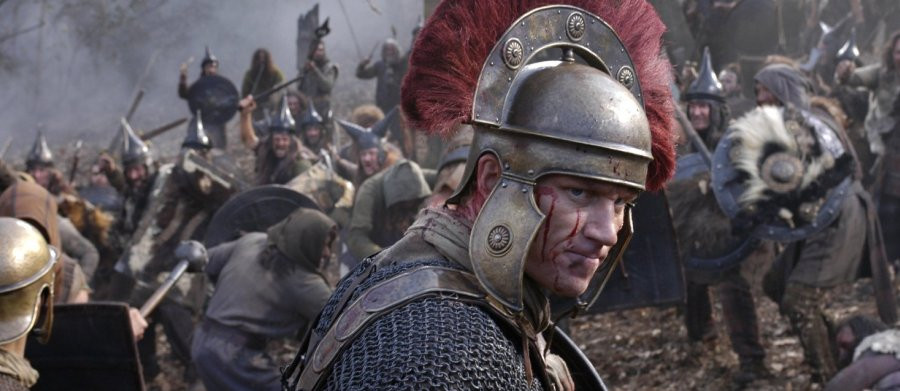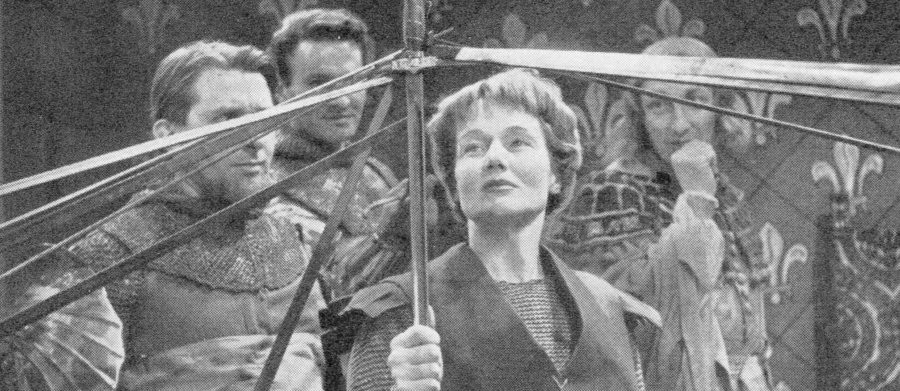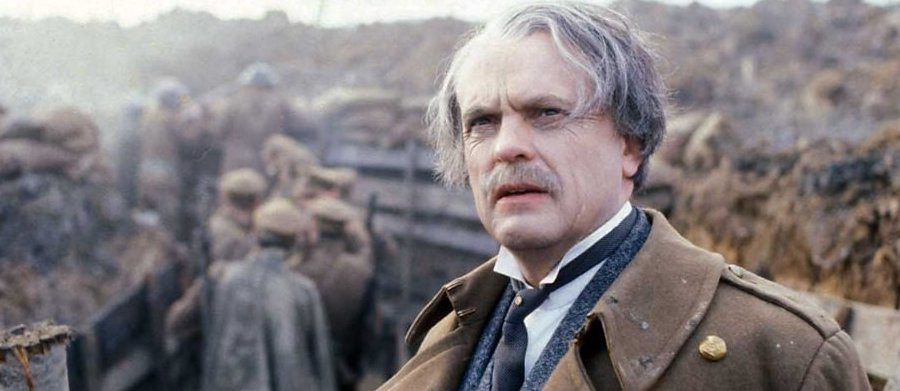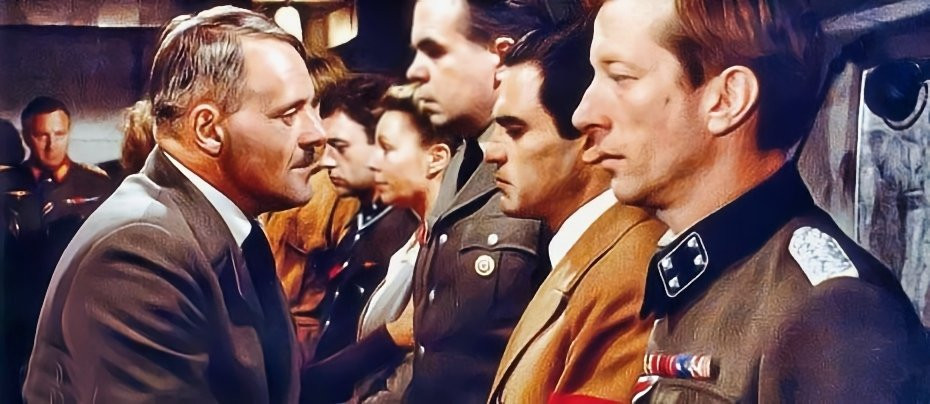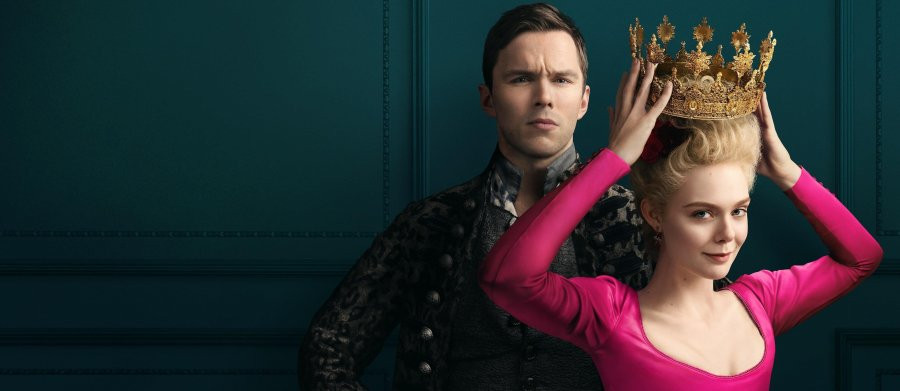
The Great
2020 - United StatesReview: John Winterson Richards
It seems that the Empress Catherine II of Russia is a heroine for our times. She has long been a symbol of national pride and expansion in Russia, where such ideas are now fashionable again. Two recent epic series based on her life, titled Ekaterina and Catherine the Great in global markets, were made almost simultaneously by competing Russian television channels. Perhaps more surprisingly, she has become a feminist role model in the West in the wake of "Me Too" - the ideal of a strong and successful independent woman in power with a supposedly "liberal" and "progressive" agenda ...as long as one does not examine the historical facts too closely. So last year Catherine was honoured with another television series called 'Catherine the Great,' this one in English, in which she was played by Dame Helen Mirren, no less.
Since three major television series is a trend, and being played by Dame Helen is the seal of approval for any Monarch, the time was right for a more satirical take on Catherine, and The Great is certainly that. Described as a "comedy drama," it is written by Tony McNamara, who also wrote the acclaimed feature film 'The Favourite,' which starred Olivia Colman as Queen Anne, so we ought to know what to expect in terms of historical veracity, or lack thereof.
To list all the inaccuracies in The Great would therefore take too long and is, in any case, unnecessary. The show really means what it says when it subtitles itself as "An Occasionally True Story." It is not meant to be taken seriously as history, which it uses in much the same way that Blackadder did - as a resource to be mined for comedy. Remember that 'Blackadder' analogy. It helps a lot.
Indeed, there may be only two solid historical facts in the whole series: there was once a very bright German girl called Catherine who married a very inadequate Emperor named Peter - and the story about her and the horse is absolutely untrue.
That is basically it. Almost everything else is made up. If you can just accept that, you might enjoy it far more than you imagined when you first heard that it was a comedy about an 18th Century Benevolent Despot.

Much of that is due to the charm with which Elle Fanning plays Catherine. She is presented as a sort of Jane Austen heroine - perhaps the naive, well meaning Emma - except with something of a potty mouth. Indeed, while the show has much that might appeal to costume drama fans, some of them might be put off by the sex and violence and bad language, which is considerable and constant.
Catherine arrives in Russia overflowing with new ideas from fashionable books and romantic optimism about her arranged marriage with the Emperor Peter. She is soon disillusioned: Peter turns out to be a spoilt overgrown child, a dull man who thinks he is clever because no one dares to contradict him.
We return to 'Blackadder' because Nicholas Hoult is of a generation which grew up with that show - and seems to have been particularly influenced by Hugh Laurie's portrayal of Prince George in 'Blackadder the Third.' He certainly appears to be channelling Laurie in his performance as Peter. This is no bad thing: one might even say "Huzzah!" However, where Prince George was merely an amiable dolt, Peter - in The Great, not history - is the product of an upbringing in which the ability to kill, or order killing, easily and without remorse is an essential survival trait. He is a clown in the sense that Caligula was a clown: his unpredictability means he is equally capable of being ridiculous or vicious. He is sometimes very vicious.
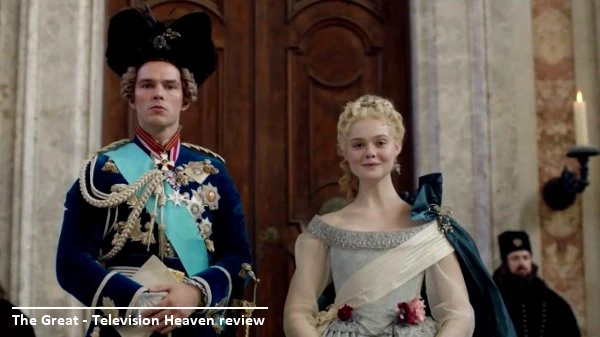
For all her romantic dreams, and her determination to make the marriage work, Catherine soon realises that she is not what he wants in a wife and he is definitely not what she wants in a husband: they have no respect for each other. However, she must hide her feelings because one of the things that rather puts her off him is that he gives real consideration to having her killed.
Catherine therefore resolves to dedicate herself to serving Russia rather than her husband. She makes several attempts to persuade him to reform his country and help his people in line with the books she has read. There are moments when she appears to be making progress with him only to see him return to the old ways. She comes to the conclusion that she cannot work through Peter and so must replace him ...with herself.
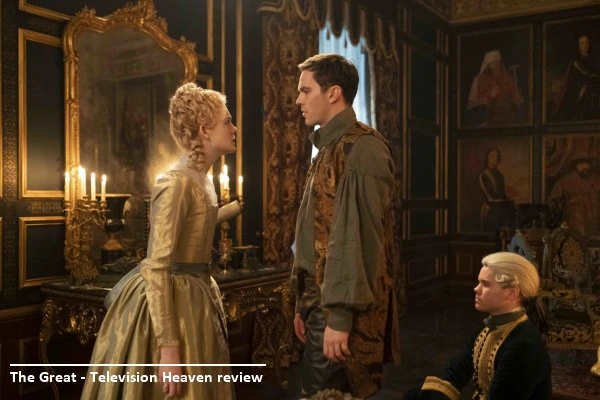
Then, almost half way through, everything changes. Catherine gets an unexpected opportunity to do the very thing she wants, but it does not go as she assumed. She discovers that she is ill prepared: her book reading has given her little understanding of the realities of the political situation. At the same time a hitherto sympathetic character commits an act of shocking brutality out of expediency. Catherine is forced to consider the possibility that a capacity for sudden violence, like Peter's, is a better qualification for ruling Russia than her philosophising.
It is a beautifully executed reversal. The tone of the whole piece is altered. Catherine sees it is no longer a game. Things are serious after all.
It is at this point that Catherine really begins to develop as a character. She learns from her mistakes and proceeds more cautiously. Outwardly, she remains light-hearted but now she understands that that she must not only depose her husband but kill him. The viewer's feelings may also shift a little. Murderous, manipulative Catherine is not as likeable as innocent victim Catherine. There is also the question of whether Peter really deserves it. There are times when he seems eager to please and tries to do the right thing. Is it his fault that his upbringing has made him what he is? Is there no hope that he might change? The awkward truth is that Hoult has made us rather too fond of Peter. Whatever else, he is entertaining.
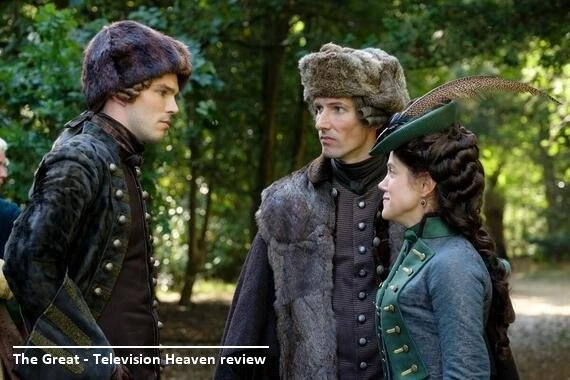
It is greatly to McNamara's credit that all of his characters are three dimensional. Catherine is not wholly good and Peter is not wholly bad. No one is. Even the supporting characters have depth. Peter's mistress (Charity Wakefield) is sometimes kind to Catherine, sometimes fiercely loyal to Peter, sometimes self serving, and sometimes concerned about her husband (Gwilym Lee) - who, as Peter's best friend, has conflicted feelings of his own. Catherine's closest allies, her wonderfully straight-faced maid (Phoebe Fox) and a nervous "liberal" politician (Sacha Dhawan), have their own issues which undermine their dedication to her conspiracy. Her officially appointed lover (Sebastian de Souza) is loyal to her but proves a useless conspirator.
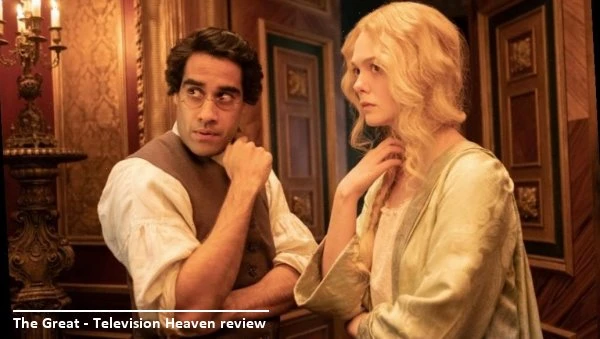
It is kept nicely uncertain whether Peter's apparently dotty aunt (Belinda Bromilow) really is that dotty - there are momentary hints that she might be the shrewdest player of all. It is typical of historical drama that the Archbishop - called simply "Archie" (played by the appropriately named Adam Godley) - who represents the official Church is shown as a traditionalist fanatic with a taste for dubious mushrooms. However, McNamara also makes him a very intelligent politician who was once a man of the world before finding a sincere faith and who has deeds of genuine kindness to his credit. Similarly, the Commander-in-Chief (Douglas Hodge, excellent) seems at first no more than a hopeless drunk whose expressions of love for Catherine cross the line of what "Me Too" might call "appropriate." Yet it turns out that he is actually a good soldier - when Peter's amateurish interference allows him to be - who cares about the lives of his men.

While the comedy remains to the very end, especially in a positively hilarious episode in which Peter and Catherine meet their Swedish counterparts, the "comedy drama" gradually becomes more dramatic. Catherine's careful plans for a 'coup d'état' prove to be of as little value as her theoretical reading. Events take over, and she learns the true price of power when she has to make a heart-breaking choice. The whole thing concludes with a superbly ambiguous cut as a pistol is fired: we do not see the consequences of her choice but the implications are clear - after all, the series is not called The Great for nothing. History tells us what she became.
Since it was made as a "miniseries," with the proposal of subsequent seasons rejected explicitly, The Great is, at the time of writing, officially over. There is the possibility that might change. A lot of people like the idea of a sequel, even if there is a danger that the grim realities of Catherine's actual reign might detract from the hint of hope on which it ended.
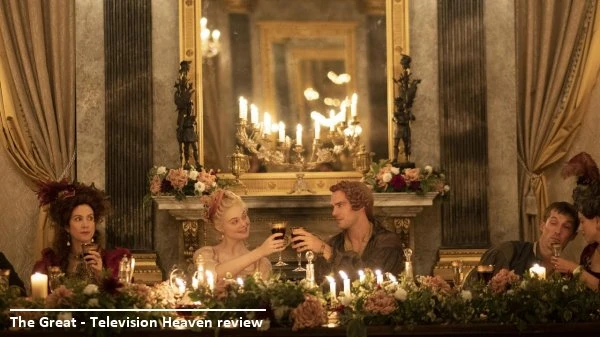
If that does indeed prove to be the very end of The Great, then at least it finished when it lived up to its name. It was a masterpiece of both storytelling and characterisation with truly outstanding production values in every department. The costumes, props, and sets were gloriously colourful (apparently, they exhausted the United Kingdom's store of gold leaf paint and more had to be imported), and the use of location was very effective, with Caserta - the largest Royal Palace in the world, the King of Naples' response to Versailles - and several British stately homes standing in surprisingly credibly as St Petersburg. If the "colour blind" casting seemed a little odd at first, it was not too jarring since it was soon obvious that nothing else was meant to be accurate either.
This is after all a show in which Catherine claims that she has met Descartes and that he smelled of cheese - when he would have smelled worse than that, having been dead for about a century by that point. French writers are used simply for name dropping, while later Russian writers, or their characters, provide convenient surnames for the supporting cast - Chekhov, Gorky, Rostov, Raskolnikov. We realise that were never really in 18th Century Russia at all but in the realm of the absurd - and great fun it was too.
John Winterson Richards
John Winterson Richards is the author of the 'Xenophobe's Guide to the Welsh' and the 'Bluffer's Guide to Small Business,' both of which have been reprinted more than twenty times in English and translated into several other languages. He was editor of the latest Bluffer's Guide to Management and, as a freelance writer, has had over 500 commissioned articles published.
He is also the author of ‘How to Build Your Own Pyramid: A Practical Guide to Organisational Structures' and co-author of 'The Context of Christ: the History and Politics of Rome and Judea, 100 BC - 33 AD,' as well as the author of several novels under the name Charles Cromwell, all of which can be downloaded from Amazon. John has also written over 80 reviews for Television Heaven.
John's Website can be found at John Winterson Richards
Books by John Winterson Richards:
Seen this show? How do you rate it?
Seen this show? How do you rate it?
Published on July 1st, 2020. Written by John Winterson Richards for Television Heaven.


